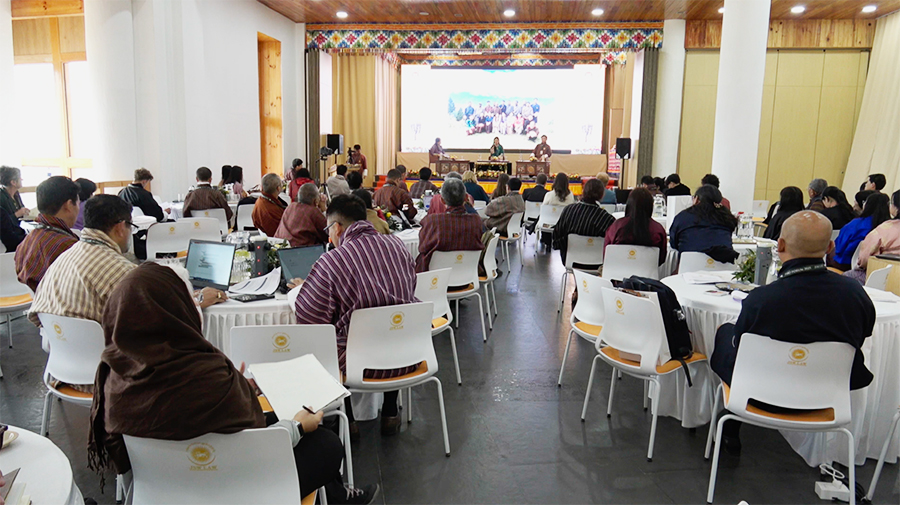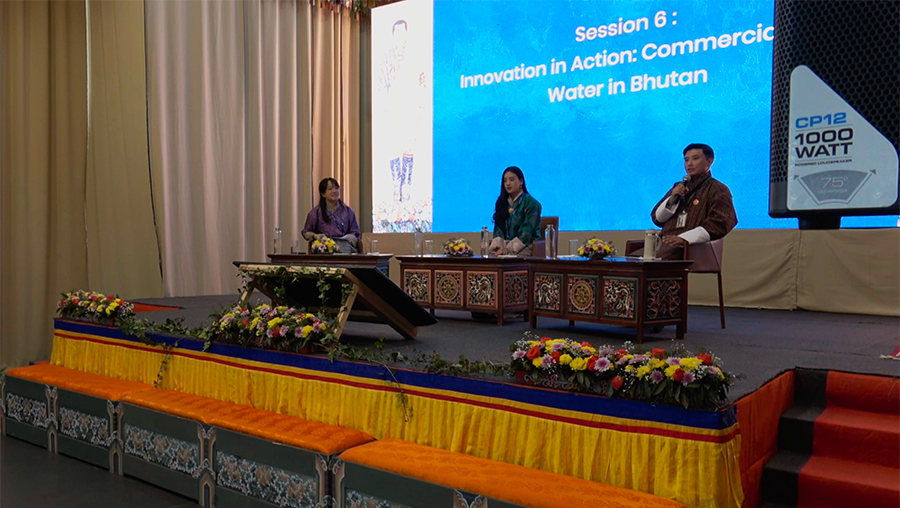 Water is essential for life, but as climate change intensifies and water shortages grow, managing this critical resource has become a pressing challenge. In Bhutan, where water is abundant but not always accessible, the debate over whether water should remain a public good or be commercialised is emerging. The recently concluded Paro Forum, led by the JSW School of Law, explored how public-private partnerships could play a role in tackling water scarcity and ensuring sustainable management.
Water is essential for life, but as climate change intensifies and water shortages grow, managing this critical resource has become a pressing challenge. In Bhutan, where water is abundant but not always accessible, the debate over whether water should remain a public good or be commercialised is emerging. The recently concluded Paro Forum, led by the JSW School of Law, explored how public-private partnerships could play a role in tackling water scarcity and ensuring sustainable management.
 Students from the Human Dignity Clinic and the Climate Change and Environmental Law Clinic at JSW School of Law, who served as panelists for the discussion, presented their research findings on the topic. Over the past few months, they visited water-scarce areas in Paro and Punakha to gather insights from local communities. They also consulted relevant agencies and experts to assess the feasibility and implications of water commercialisation.
Students from the Human Dignity Clinic and the Climate Change and Environmental Law Clinic at JSW School of Law, who served as panelists for the discussion, presented their research findings on the topic. Over the past few months, they visited water-scarce areas in Paro and Punakha to gather insights from local communities. They also consulted relevant agencies and experts to assess the feasibility and implications of water commercialisation.
Their research revealed that while Bhutan does not face a severe or widespread water crisis, some communities experiencing acute shortages believe a balanced approach could help, ensuring water supply remains accessible and affordable.
At the forum, panelists suggested that commercialising water could improve management and conservation. However, others raised concerns about equity and accessibility, stressing that water should remain a fundamental right rather than a commodity.
Sonam Deki Chopil, a student of Climate Change and Environmental Law Clinic said “So, while we did this research, we found out that there were more questions to our research than answers. There were mixed responses. So, here we are not exactly promoting water privatisation but what we are saying is that there is a potential for water commercialisation in Bhutan.
Phelden Yoezer, a student of Human Dignity Clinic said “Our perspective on the commercialisation of water is that it must not be a completely private enterprise. Currently, with the legal frameworks that we have in hands, private entities are allowed to certain part of distribution and supplying of water but not ownership of resource itself. So, most importantly when we do look into water as a resource, we need to ensure that any form of commercialisation ensures that inclusivity, innovation, affordability and accessibility are taken into prime consideration.”
The discussion emphasised that Bhutan must act now to manage its water resources wisely ensuring water accessibility to all.
Bhutan has abundant water resources, but their distribution and accessibility remain a challenge in some areas.
Currently, water resources are primarily managed as a public good rather than a commercial commodity. The government controls water resources, ensuring that access to clean water remains a fundamental right for all citizens. The Water Act of Bhutan 2011 emphasises water as a public resource, prioritising its use for drinking, agriculture, and hydropower over commercial purposes.
Namgay Wangchuk, Paro
Edited by Kipchu








